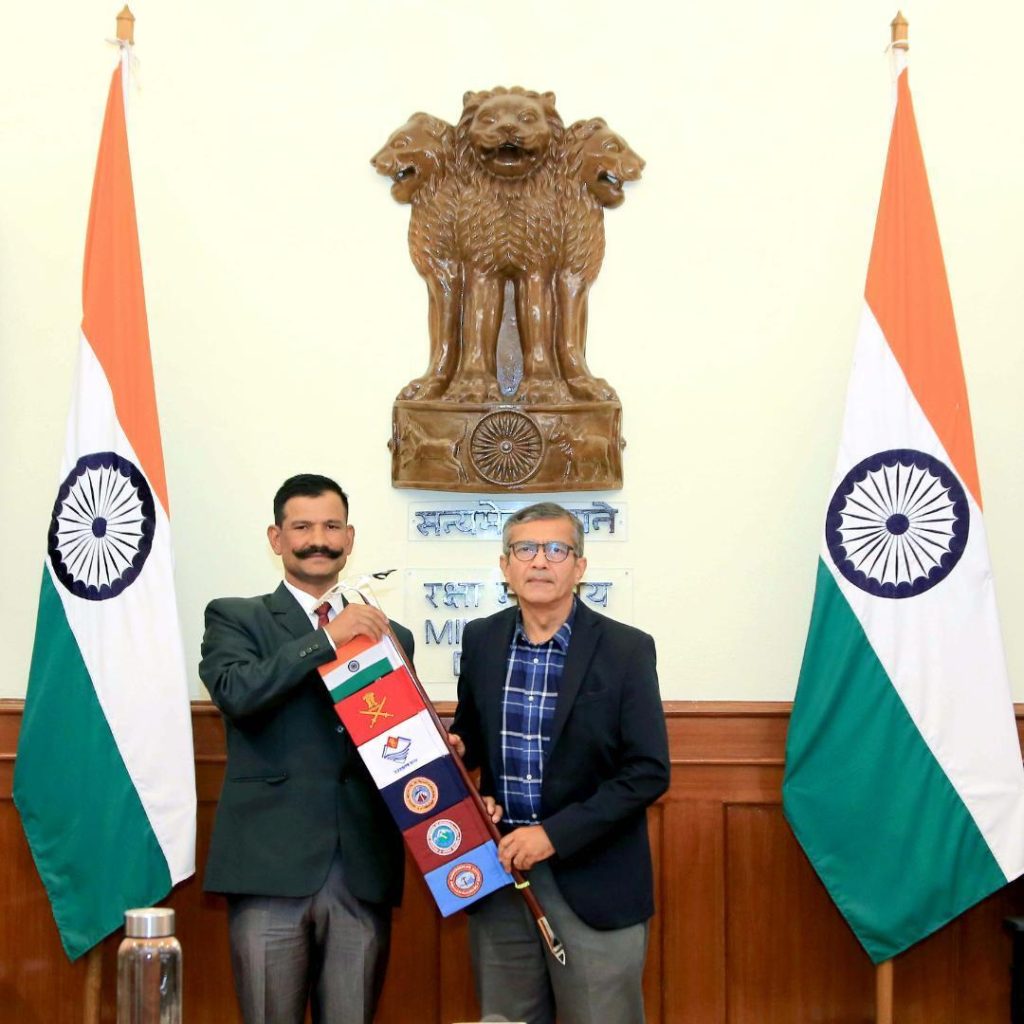
India Flags-in Mount Everest & Kilimanjaro Expeditions
The Indian Defence Secretary, Rajesh Kumar Singh, flagged off two prestigious mountaineering expeditions to Mount Everest and Kilimanjaro on July 17, 2025. The Everest mission marked a significant milestone in the history of the Nehru Institute of Mountaineering, celebrating its 60th anniversary. Meanwhile, the Kilimanjaro team featured a remarkable Divyangjan (differently-abled) climber, Uday Kumar. These expeditions showcased India’s mountaineering prowess and its leadership in adventure and exploration across land, sea, and air.
Mount Everest Expedition
The Mount Everest expedition, led by the Nehru Institute of Mountaineering, aimed to conquer the world’s highest peak, a feat that requires exceptional skill, physical endurance, and mental toughness. The team of experienced climbers, instructors, and support staff embarked on this challenging journey to celebrate the institute’s diamond jubilee. The expedition marked a significant milestone in the institute’s history, demonstrating its commitment to promoting mountaineering and adventure sports in the country.
The team faced numerous challenges during their ascent, including harsh weather conditions, steep terrain, and thin air. However, their determination and expertise enabled them to overcome these obstacles and reach the summit of Mount Everest. The successful expedition served as a testament to the institute’s excellence in mountaineering and its ability to produce top-notch climbers and adventurers.
Kilimanjaro Expedition with Divyangjan Climber
The Kilimanjaro expedition, led by the Indian Army, featured a remarkable Divyangjan climber, Uday Kumar. The expedition was part of the Indian Army’s initiative to promote inclusivity and accessibility in adventure sports. Uday Kumar, who was born with a physical disability, proved that determination and courage can overcome any obstacle. His participation in the expedition served as an inspiration to many, demonstrating that adventure and exploration are accessible to everyone, regardless of their abilities.
The Kilimanjaro expedition was a challenging but rewarding experience for Uday Kumar and the rest of the team. The climb required a high level of physical fitness, mental toughness, and strategic planning. The team faced numerous challenges, including steep inclines, dense fog, and unpredictable weather conditions. However, their teamwork, camaraderie, and determination enabled them to overcome these obstacles and reach the summit of Kilimanjaro.
India’s Mountaineering Excellence
The successful completion of the Mount Everest and Kilimanjaro expeditions showcased India’s mountaineering excellence and adventure leadership across land, sea, and air. These expeditions demonstrated the country’s ability to produce world-class climbers, instructors, and adventurers, who can conquer some of the most challenging and iconic peaks around the world.
India’s mountaineering achievements are a testament to the country’s rich cultural and sporting heritage. The Nehru Institute of Mountaineering, which was established in 1965, has played a significant role in promoting mountaineering and adventure sports in the country. The institute has produced many top-notch climbers and adventurers, who have gone on to conquer some of the most challenging peaks around the world.
Conclusion
The Mount Everest and Kilimanjaro expeditions were a significant milestone in India’s mountaineering history, showcasing the country’s mountaineering excellence and adventure leadership. The successful completion of these expeditions demonstrated the country’s ability to produce world-class climbers, instructors, and adventurers, who can conquer some of the most challenging and iconic peaks around the world.
These expeditions also served as a testament to India’s commitment to promoting inclusivity and accessibility in adventure sports. The participation of Uday Kumar, a Divyangjan climber, in the Kilimanjaro expedition was a remarkable achievement, demonstrating that adventure and exploration are accessible to everyone, regardless of their abilities.
As India continues to promote mountaineering and adventure sports, it is essential to remember the importance of inclusivity, diversity, and accessibility. By promoting these values, India can continue to produce world-class climbers, adventurers, and leaders, who can conquer new heights and make a positive impact on the world.
Source:
https://www.refersms.com/mount-everest-kilimanjaro-expeditions/






